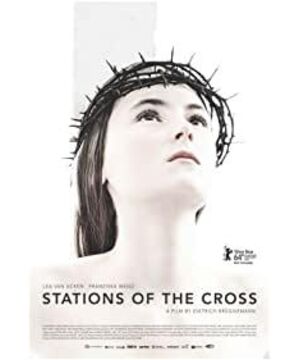and then suddenly it was bright and fascinating.
Because from the second shot, Maria's winter tour instantly reminded me of my mother. Irrefutable control of rigid one-dimensionality, and even more terrifying, love. This kind of love terrifies me. I was horrified and disgusted when her mom picked her up from school and touched her cheek in the car.
In the fourteen gloomy and empty scrolls, Mary walks to the cross step by step, sacrificing herself in fear and pride out of extreme intolerant belief.
But the question is, will God accept this kind of forced sacrifice? Is it possible to commit suicide in the name of sacrifice just out of personal will, hoping that my brother will recover from his illness (I'm not a Christian, but I'm just a little puzzled)?
I don’t quite understand the ending. Does spitting out the sacrament imply God’s rejection, so why is my brother able to speak? In addition, what my brother said was, 'Maria, where has Maria gone', I feel so amazing, this child can see the soul of a person. He must have seen Mary's soul leave the body. But does 'where to go' imply that Maria's 'sacrifice' did not lead her to heaven, as she told the French girl about her fears in the previous scene. There is no clear answer here.
The fixed long shot is so poetic. Except for the rigid and dull small room in the first scene, the subsequent shots have a sense of space and tension, creating an empty and distant artistic concept in the narrow space. I like this light sense of alienation, just like "Transcendence", the color tone and picture texture are soothing.
View more about Stations of the Cross reviews











